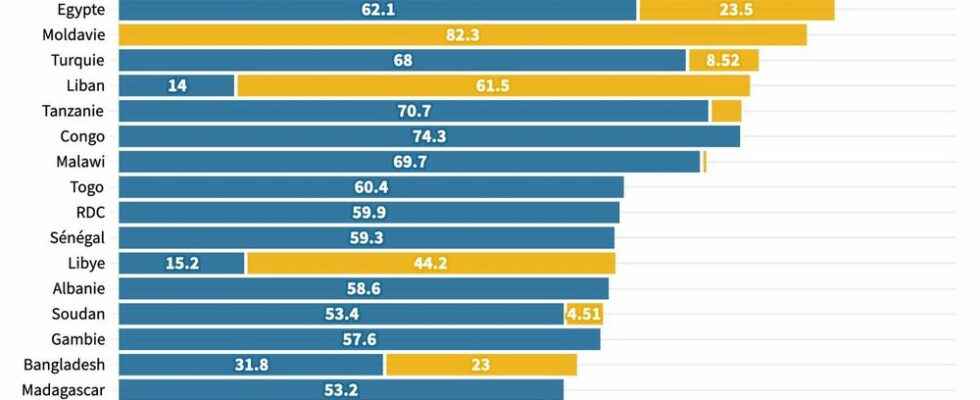“Food shortages will materialize,” warned US President Joe Biden in Brussels on Thursday March 24 after G7 and NATO summits. The invasion of Ukraine by Russia – two major wheat exporters – poses the risk of a global food shortage.
French President Emmanuel Macron also called on Moscow to be “responsible” by allowing sowing in Ukraine to take place. Otherwise the war will cause in 12 to 18 months “an inevitable famine”, with grain shortages in the Middle East and North Africa, he warned.
What is it really? Countries such as Somalia, Pakistan, but also Egypt do indeed report strong dependence on Russia and Ukraine, beyond 80% of their wheat imports. Lebanon is also in a delicate situation, with more than 60% of its wheat traditionally imported from Ukraine. Tunisia and Libya exceed 40% of wheat shipped from Ukraine. A handful of countries, such as Kazakhstan, Azerbaijan, the Democratic Republic of Congo and Madagascar, are dependent on Russian deliveries. The first two cited in full, or almost.
More broadly, the States most dependent on wheat from Eastern Europe are located mainly in Africa, as well as in the Middle East and the rest of Asia.
The main importers of Russian and Ukrainian wheat
The Express
Massive aid to come
Both the United States and Canada, major cereal producers, have decided to increase their exports accordingly. But not only. Washington has announced that it will devote 11 billion dollars (about 10 billion euros) over the next five years to respond to threats to food security and malnutrition in the world.
France, for its part, has proposed an emergency plan for food security at EU and G7 level, starting with an “emergency plan for the release of stocks in the event of a crisis to avoid any shortage and moderate price increases“Since the start of the war, the price of common wheat has risen sharply and is now above 370 euros per tonne.
Bread wheat price
The Express
In addition, Emmanuel Macron wished “as of this summer a coordinated action of the producing countries to temporarily raise the production thresholds when possible” and “to set up a mechanism for allocating volumes to guarantee access for all, in particular of the most vulnerable, in sufficient quantity and at reasonable prices”, on the model of the initiative to distribute anti-Covid vaccines to the most deprived countries. Finally, Emmanuel Macron suggests helping production in the most affected countries, “by significantly increasing investment in sustainable food production and agricultural value chains”.
